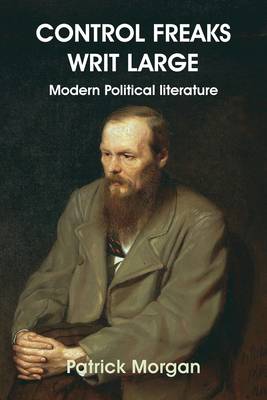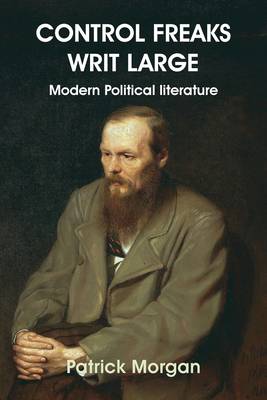
- Retrait gratuit dans votre magasin Club
- 7.000.000 titres dans notre catalogue
- Payer en toute sécurité
- Toujours un magasin près de chez vous
- Retrait gratuit dans votre magasin Club
- 7.000.0000 titres dans notre catalogue
- Payer en toute sécurité
- Toujours un magasin près de chez vous
Description
This book outlines the main features of political literature in modern times from Dostoevsky to Saul Bellow. It compares political literature from the USA and Western Europe with that from Russia and Eastern Europe. In comparing them, we must keep in mind Dan Jacobsen's warning in The London Review of Books:
First, how foolish and dangerous it is, in thinking out the nature of the Soviet system, to minimize the difference between our experience and theirs, our opportunities and theirs, our ways and theirs, of managing the relations between the state and the citizen. Secondly: how foolish it would be to imagine that the desires and fears which help to sustain their system, in all its reaches, are not perfectly recognizable everywhere about us and within us.
In the battle over ideas over recent centuries, writers and their product, literature, have been crucial. Many writers endured oppressive regimes, which gave them little space to breathe, while others supported them. Words were weaponized, becoming agents of mental coercion, eventually taking over from torture as the authorities' preferred instrument of persuasion. Facile wordsmiths working in teams were employed by regimes to suborn civilian populations by producing false literature, 'this string of ever ready words' which Dostoevsky detested.
Patrick Morgan has produced a dozen books on areas where politics, culture history intersect. He publishes regularly in Quadrant and other journals. He was employed for three decades in English at Monash University's Clayton & Gippsland campuses, and has been a member of a number of state and federal boards. He lives at Boolarra in Gippsland with wife Ann.
Spécifications
Parties prenantes
- Auteur(s) :
- Editeur:
Contenu
- Nombre de pages :
- 262
- Langue:
- Anglais
Caractéristiques
- EAN:
- 9781922815132
- Date de parution :
- 25-07-22
- Format:
- Livre broché
- Format numérique:
- Trade paperback (VS)
- Dimensions :
- 152 mm x 229 mm
- Poids :
- 353 g

Les avis
Nous publions uniquement les avis qui respectent les conditions requises. Consultez nos conditions pour les avis.






